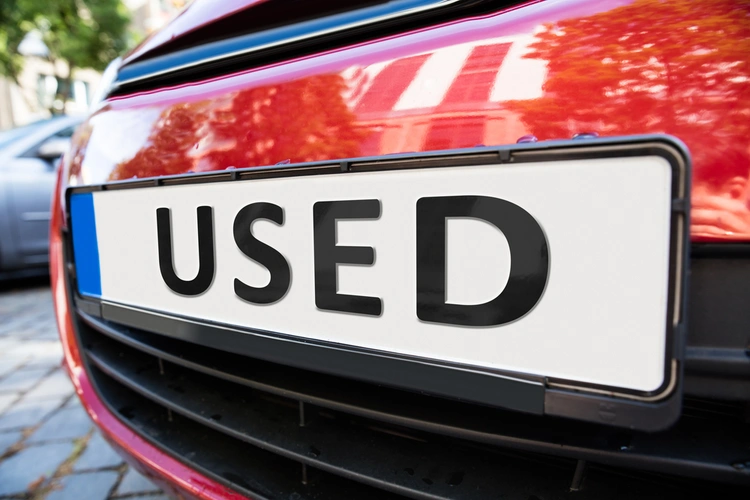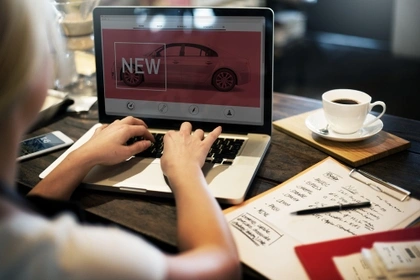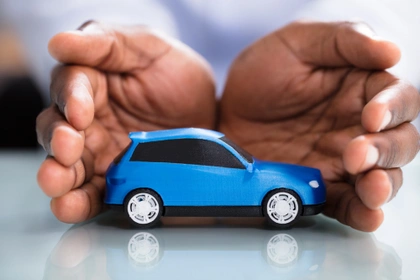What is used car finance?
Used car finance is one way to pay for a second-hand car when you can’t or don’t want to pay the full amount in cash. There are several reasons why you might choose car finance: you could need a new car as soon as possible, perhaps because your existing vehicle has broken down; your savings might already be set aside for a different purpose; or you may like to have the option of returning the car at the end of your loan term.
With used car finance, you agree to take out a loan that allows you to spread the car’s cost into affordable monthly repayments and pay interest in return. There are different types of car finance available, and the right option for you will depend on many factors, including:
- the car’s value
- where it’s being sold
- whether you’d like to own it outright at the end of the loan term
- your individual circumstances and financial situation
How does used car finance work?
If you think used car finance may be the best choice for you, there are several options available. The three most common types of car finance are hire purchase (HP), personal contract purchase (PCP), and a personal loan, and each option has different advantages and disadvantages. When you apply for a no-obligation quote via Ocean, you’ll be paired with a dedicated account manager who will be able to explain each finance type in detail so you can make an informed decision.
With both HP and PCP loans, you’ll typically be asked to put down a deposit upfront, although no-deposit loans are sometimes available. You’ll then pay the remaining amount, plus interest, in fixed monthly repayments over an agreed loan term.
At the end of your agreement, the next steps will depend on your type of car finance. Once you’ve finished making repayments on an HP loan, you’ll usually need to pay a small admin fee – known as the Option to Purchase – to take ownership of the car. With PCP, you have more options: you can choose to return the car to the finance company or take ownership of it by paying the one-off balloon payment. You may be able to use the car as a deposit towards a new one, depending on how much it’s worth when your deal ends.
Is it a good idea to finance a used car?
Financing a used car can be a big decision; it’s likely to be one of the biggest purchases you’ll make in your lifetime, after all. While buying a car outright with cash might be the cheapest option, especially in the long run, finance may be the better choice if you don’t have savings readily available. And depending on the loan type you choose, you might be able to afford a newer or higher spec car than you would otherwise.
If you’re struggling to decide between buying a new or used car, there may be several advantages to choosing a second-hand vehicle. New cars can lose value, or ‘depreciate’, at a faster rate than older models, so a vehicle that’s only three or four years could offer you a much better deal than a brand-new car.
However, it’s worth keeping in mind that used cars sometimes don’t offer a guarantee and may have pre-existing faults. Taking a test drive, studying the paperwork, and checking over the car thoroughly before you buy could help you make a more informed decision.
How much does car finance cost?
There’s no fixed cost when it comes to car finance; costs can be affected by things like your initial deposit, the length of your loan term, and the type of car loan you have. The interest rate you pay will be subject to factors such as your financial history, employment status, credit score, and more. Borrowers who are perceived as high risk for a lender may be offered a higher APR than lower-risk applicants.
Even so, usually, the more money you borrow, the higher your monthly repayments will be. Your loan term can also affect your payments: a longer term may make them lower but might mean you’ll end up paying more interest overall.
Our car finance calculator can help you estimate your monthly repayments based on the amount to borrow, loan term length, and your credit profile.
What types of car finance are available?
Hire Purchase (HP)
Hire Purchase – also known as HP car finance – spreads the cost of a used car over a set period. You’ll usually need to put down an initial deposit of around 10% but, once you’ve finished making repayments, the car will be all yours!
As your loan amount will be the car’s full value (minus any deposit), monthly payments can be higher than some other finance options, but you won’t usually face any mileage restrictions during the term.
Personal Contract Purchase (PCP)
Personal Contract Purchase (PCP) is like HP, but instead of covering the car’s full value, the finance will only cover the difference between the car’s purchase price and its Guaranteed Minimum Future Value or GMFV (the predicted price when your deal is due to end).
This means that your loan payments will likely be lower than they would be with HP, but you won’t automatically own the car at the end of your agreement. Instead, you can return it to the lender or opt to pay the balloon payment – equivalent to the GMFV – to buy it outright. Or you may be able to use it as a deposit towards a new car if you have enough equity. You may also need to agree to mileage restrictions and face extra charges if you exceed these limits.
Personal Contract Hire (PCH)
If car ownership isn’t important to you, personal contract hire (PCH) or leasing could be your best option. PCH is a type of long-term lease, which offers the use of a car for two or three years. You’ll usually need to pay a deposit, agree to mileage restrictions, and keep the car in good condition to avoid paying extra charges. However, some leasing companies can only offer PCH on brand-new vehicles, not second-hand cars.
Personal Loan
Unlike HP and PCP, with a personal loan, you’ll own the used car as soon as you’ve paid its seller. If you keep up with your monthly repayments, you can do whatever you like to the vehicle: drive long distances, make modifications, or even sell it! No deposit is usually needed but you might need a strong credit score to secure the best rates.
What information is needed for a car loan?
Each lender has different requirements when it comes to car loan paperwork, but you’ll likely be asked to provide:
- Proof of ID – such as a copy of your UK or EU driving licence
- Proof of income – like three-months’ payslips or bank statements
- Proof of address – including a council tax statement or recent utility bill
Will applying for used car finance affect my credit score?
When you get a quote for used car finance, you’ll undergo an initial soft credit check. This won’t be visible on your credit report or impact your score. A hard credit check, which will leave a mark on your file, only takes place if you choose to proceed with the finance application.
Once a lender approves your loan application, you might see your score dip slightly, as you’ll be adding a large new debt to your report – but your score should recover relatively quickly if you keep up with your repayments.
Can I get bad credit car finance?
If you have a poor credit rating and are worried that you won’t be eligible for car finance, be assured that it’s not impossible to find a loan. While bad credit can limit the options available to you – and you might be rejected by some lenders – it’s not the only factor that finance providers consider. Your affordability, the amount you want to borrow, and the type of car you want to buy can all affect the lender’s final decision. There are also lenders that specialise in bad credit car loans.
Can I get used car finance with no deposit?
Zero-deposit used car finance is available. While not every lender will approve a loan without a deposit, some will finance 100% of a used car’s purchase price.
Even so, this might not be the right option for you. The more money you can put down upfront, the less you’ll need to borrow. A deposit could reduce your monthly repayments or make it more likely you’ll be approved if you have a poor credit score.
How can I get the best used car finance deal?
The best used car finance deal for you will always be the one that best suits your individual circumstances. When comparing loan options, double-checking all the terms and conditions can help you make the right decision. It’s sensible to check whether any limits, such as mileage restrictions, are included and what your total cost of borrowing will be. Setting a budget could also help ensure you don’t overspend.
You could also consider applying with a car finance broker like Ocean. We will look to find you the best deal available from a panel of lenders.
Choosing a used car to finance
Used car dealers don’t always enjoy a good reputation and there are horror stories out there about cars listed with false mileages, models that break down as soon as you leave the forecourt, and hidden issues that can cost a lot to repair.
While no car can guarantee a trouble-free experience, buying a car from an established dealership with a good reputation could help you avoid some of the most common pitfalls. You can also check the car’s details before you buy. The DVLA’s free vehicle information checker can tell you if their records match the seller’s listing, while the car’s MOT and service history can also provide more information.
Tips when buying a second-hand car
Whether you’ve found your dream used car online or at a local dealership, you may wish to carry out a few checks before committing to the purchase:
- Review the car’s exterior and interior – look out for any dents, scratches, and rips in the upholstery
- Check the fluid levels – including the oil and coolant
- Try the electrics – such as the radio, air conditioning, windscreen wipers, and windows
- Take a test drive – listen out for any unusual noises as you drive and check how the clutch feels
- Look over the documentation – ideally, the car should come with a complete service history, its manufacturer handbook, and V5C logbook
Get Car Finance up to £100,000
- Check your eligibility without impacting your credit score
- No deposit needed
- Rates from 9.9%* APR
*Representative example: Borrowing £6,500 over 5 years with a representative APR of 19.9%, an annual interest rate of 19.9% (Fixed) and a deposit of £0.00, the amount payable would be £166.07 per month, with a total cost of credit of £3,464.37 and a total amount payable of £9,964.37. Rates may differ as they are dependent on individual circumstances. Subject to status. We're a credit broker, not a lender.
Disclaimer: All information and links are correct at the time of publishing.





